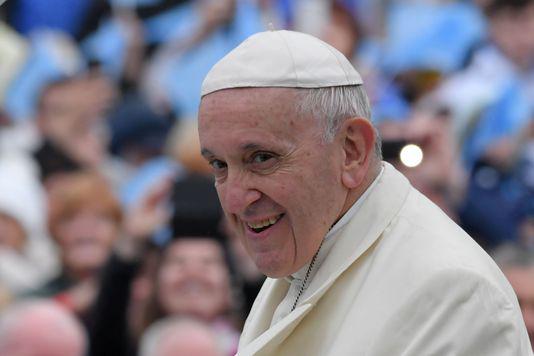|
In a Catholic Church where even the pope covers for sexual abuse, everywhere is as bad as Boston
By Brett M. Decker
[with video] A damning allegation from Catholic leader charges Pope Francis of covering for Cardinal McCarrick despite knowing about his sexual abuse record. A report released this weekend by a former Vatican ambassador to the United States charges that Pope Francis knew about sexual abuse by former Cardinal Theodore McCarrick, removed a suspension placed on him by Pope Benedict, and proceeded to make the known abuser one of his most trusted advisors. Pope Francis “knew from at least June 23, 2013 that McCarrick was a serial predator, [but] he covered for him to the bitter end,” wrote Archbishop Carlo Maria Vigano, nuncio to Washington from 2011-2016, before demanding the pontiff resign. The pope knew. That is a damning allegation coming from a very senior church leader. It also corresponds to anecdotal evidence piling up against Francis. Earlier this year, Pope Francis attacked Chilean sex-abuse victims for “calumny” and defended the bishop who covered up for a pedophile priest. The pope ignored complaints about the enabling bishop before promoting him in 2015. There are accusations against Pope FrancisEven more profound is the charge by an Argentinian woman who says the sexual abuse of her son was covered up by this pope, who had her forcibly removed from his office when she tried to report the crime when he was archbishop of Buenos Aires, and then known as Cardinal Jorge Bergoglio. “Bergoglio was aware of my complaint,” says Beatriz Varela, whose son was awarded monetary damages from the church by a civil court. “Everyone knows and everyone remains silent, so they’re all accomplices.” The charge that “everyone knows” caused me to reflect on my own firsthand experience with the McCarrick case. In late 2002, I was editing a book review of Paul Dinter’s upcoming release "The Other Side of the Altar" for one of America’s largest newspapers. In it, the former priest detailed a church culture of arbitrary power and secrecy that nurtured a dynamic where systematic abuse could occur unimpeded. Dinter recounted the sexual transgressions of a then-U.S. cardinal and former New York auxiliary bishop who was notorious for taking groups of seminarians to his weekend home and sexually harassing or abusing them but was nonetheless promoted up through the ranks by Pope John Paul II. It took a few short minutes to figure out that the only cardinal who fit the description at that time was McCarrick. Outraged, I copied and highlighted the relevant pages of the book, attached a list of U.S. cardinals and McCarrick’s bio, which proved the priest described was him, and hand-delivered the package to the chancery of the Archdiocese of New York. I was assured the information would receive urgent attention, but I never heard back, and my follow-up calls were sent to an inactive voicemail. That was over 15 years ago. McCarrick was finally, belatedly forced to resign from the cardinalate last month. For Church leaders to deny knowledge of notorious, serial abuses that appeared in print in prominently published books strains credulity. McCarrick’s successor and current archbishop of Washington, D.C., Cardinal Donald Wuerl, denies knowing that Pope Benedict had censured his predecessor despite that he and McCarrick continued to live in the same city. “[He] lies shamelessly,” says Archbishop Vigano, the former nuncio. “I myself brought up the subject with Cardinal Wuerl on several occasions.” Bishops aid priests instead of victimsWuerl swears he knew nothing about legal settlements for McCarrick’s misdeeds. Wuerl likewise is playing dumb about a proliferation of coverups of clergy sexual abuse reported by the Pennsylvania attorney general that was perpetrated in the Diocese of Pittsburgh, where Wuerl previously was bishop for 18 years. “Cardinal Wuerl is not telling the truth,” insists Attorney General Josh Shapiro, who headed the investigation that found more than 1,000 cases of child abuse by more than 300 priests in the Keystone State. A sentiment I’ve heard regularly in Catholic circles in Washington and elsewhere is: At least we’re not Boston. That refers to the far-reaching abuse scandals that rocked the nation and took down Cardinal Bernard Law, the late, powerful archbishop of Boston and favorite of John Paul II who was exposed for shuffling around pedophile priests. The implication of the “At least we’re not Boston” attitude is that some places are worse than others, or recent abuse reporting protocols instituted by the bishops are effective. The harsh reality that all Catholics need to realize is that everywhere is like Boston. There are few protections when the predators are the bishops who are empowered to police themselves and instead cover up for each other, from the pope on down. A trope of the last six papacies has been to extol the advances of a supposed “Springtime of Vatican II,” the revolutionary church council from 1962-65 that was called to open the Church to the modern world. Far from a spring flowering, the festering sex-abuse scandal shows that the Church of Rome is actually going through a long, cold, very dark winter.
|
.
Any original material on these pages is copyright © BishopAccountability.org 2004. Reproduce freely with attribution.
